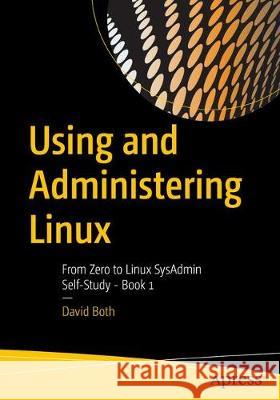Using and Administering Linux: Volume 1: Zero to Sysadmin: Getting Started » książka
topmenu
Using and Administering Linux: Volume 1: Zero to Sysadmin: Getting Started
ISBN-13: 9781484250488 / Angielski / Miękka / 2019 / 629 str.
Kategorie:
Kategorie BISAC:
Wydawca:
Apress
Język:
Angielski
ISBN-13:
9781484250488
Rok wydania:
2019
Ilość stron:
629
Waga:
1.13 kg
Wymiary:
25.4 x 17.78 x 3.4
Oprawa:
Miękka
Wolumenów:
01
Dodatkowe informacje:
Wydanie ilustrowane











